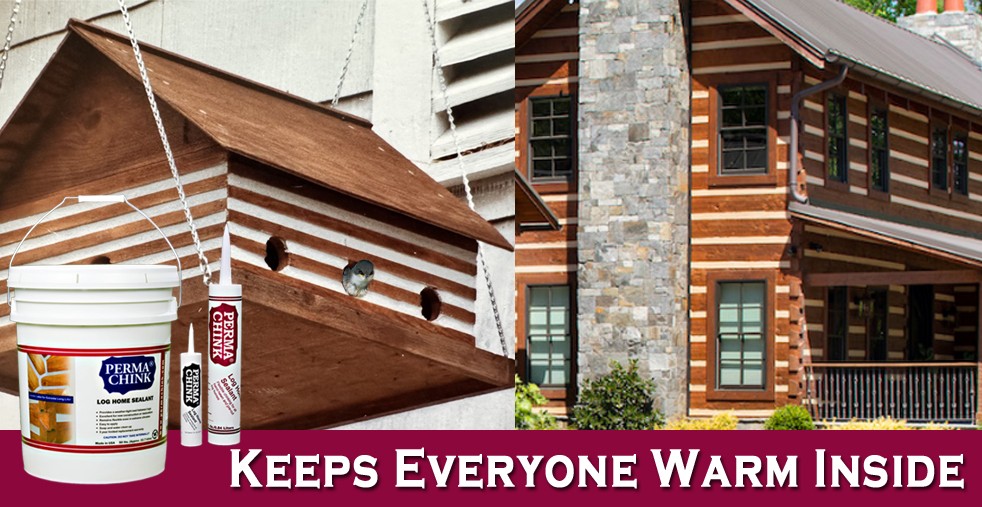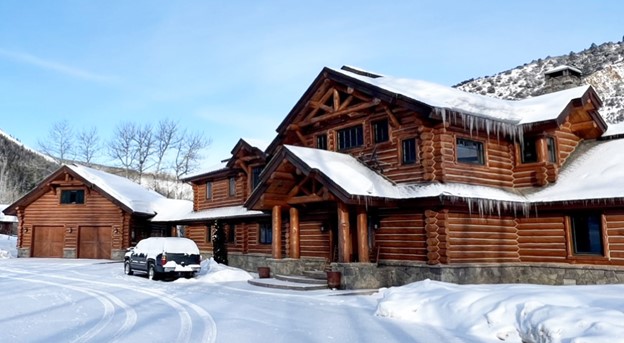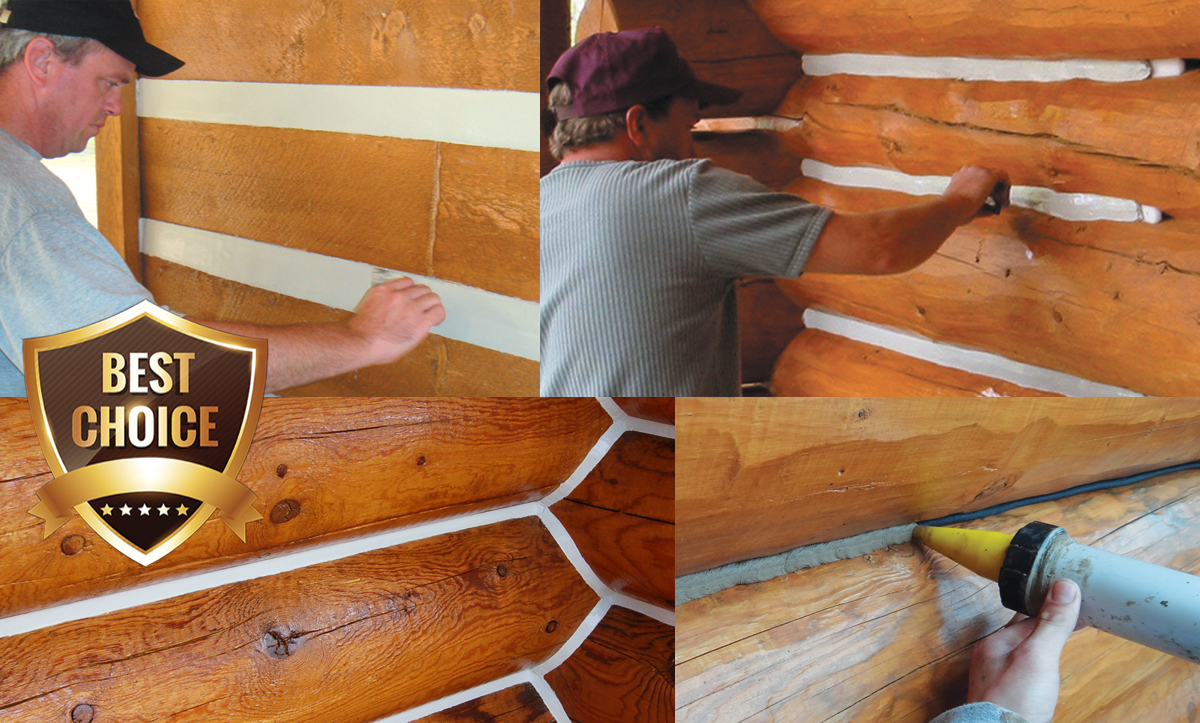
Caulking vs. Chinking
Caulk typically comes from a tube and is used to fill a small crack or seal edges along windows, trim, sinks, and bathtubs. This material is designed to be squeezed out in small amounts, then blend in and disappear. Caulks are completely waterproof, easy to apply, and easy to clean up. Today, there is an overwhelming selection of caulks including waterborne, oil-based, and silicone. Prices range from $2 for an 11oz. tube to $26 for the same size.
There are three main reasons why you don’t want to use a general caulk on a log cabin:
-
Caulk is impenetrable. Wood is an organic material and internal moisture is an inherent quality of any log. A caulk will trap moisture, which leads to mold, rot, and unsightly stains.
-
Caulk is not engineered to adhere to wood. Some turn hard and develop a cracked “alligator” skin appearance, or they separate from the wood entirely. In these scenarios, the sealant has failed, and water will get underneath, leading to rot and stains. When that happens, more water penetrates the log walls and rotting gaps become a haven for insects.
-
Caulk is a low-quality product. Despite the spectrum of price points, caulks are essentially a bottom-line resin effective for a very narrow set of purposes. This does not include sealing your prized log home.
Chinking, on the other hand, is specifically designed for the purpose of sealing log homes, able to withstand the onslaught of environmental attacks and wood movement. Unlike caulk, which tends to be smooth and glossy, chinking has definitive texture that complements wood’s organic surface. Historically, chinking materials were made from what was regionally available. In Northern Europe, they used a special moss that did not cause log rot. Other places mixed horsehair or grass with mud or clay. Even today, it’s possible to purchase “log caulk” that has sand mixed with it to approximate a desirable rustic texture. None of these options are known for their effectiveness in withstanding movement and maintaining a proper seal over time.

In addition to offering the appropriate texture, our chinking is the kind of sealant a log cabin needs and deserves, and has four distinct qualities that sets it apart from caulk. For log homeowners, these qualities should be considered requirements when considering chinking.
-
Log Home chinking must be breathable to let moisture escape the wood, while preventing new moisture from entering.
-
Log Home chinking must have elastic qualities so it can move with wood’s daily and seasonal expansion and contraction.
-
Log Home chinking must stick to the gap between the logs, even for log homes where the chinking remains invisible.
-
Log Home chinking must resist the weather’s relentless tests — snow, rain, heat, and ice.

Chinking Superpower
Not only do our log sealants excel in the requirements that a high-performance chinking must possess, but we’ve devised a special formula with a distinct property. Our chinking sealants are thixotropic to provide exceptional peformance and fight environmental damage. A non-thixotropic sealant is prone to slumping and blistering, leading to issues that require a reapplication of the sealant and hoping the same issues don’t happen a second time.
Our thixotropic sealants stay exactly where the applicator leaves it, making them easier to apply with accuracy. In fact, we’ve spent years perfecting our formula to find the ideal balance between viscosity and thixotropic abilities. Our sealants can be easily pumped, squeezed, and applied by professionals and do-it-yourselfers alike. Professionals love our thixotropic sealants because they can get the job done right the first time.
 We offer three types of sealants to accommodate different log home construction methods. Perma-Chink, our original elastic log home chinking, is designed for log gaps sized 1-inch or larger. Energy Seal has a more refined texture for log gaps less than 1-inch. Finally, Woodsman is a smooth and lightly textured log sealant that goes between stacked logs with no gaps.
We offer three types of sealants to accommodate different log home construction methods. Perma-Chink, our original elastic log home chinking, is designed for log gaps sized 1-inch or larger. Energy Seal has a more refined texture for log gaps less than 1-inch. Finally, Woodsman is a smooth and lightly textured log sealant that goes between stacked logs with no gaps.
All our sealant products come in an array of rich, earthy colors to complement any log home and work as an extra-strong, protective system with our wood stains and finishes. Perma-Chink lets your log home be permanently beautiful for your permanent enjoyment.
